Overview
The Need - a lot of equipment owned by individuals is used only a few hours in its lifetime. An effective sharing economy model would help realise underutilised potential.
The Solution - a peer-to-peer sharing platform for technical equipment; a thriving marketplace for lenders and borrowers with insurance covered by FatLama.
The Benefit - access to a wide range of high end equipment at an affordable rate; extra revenue from your idle assets; a strong incentive to create equipment that lasts.
…the real sharing economy is dead?
"It was a beautiful idea that struck hard, but when it died, nobody seemed to notice…And nobody seemed to ask the question of how an idea that everybody loved so much, an idea that made so much sense on a practical and social level, morphed into the pure capitalism that it is today."
This was how Fast Company summed up the death of the sharing economy in 2015, and at the time it seemed difficult to find much evidence to the contrary. The idea that we could use digital platforms to borrow what we needed from our neighbours, and hence own less stuff ourselves, didn’t really materialise. Not as far as the initial promise might have suggested anyway, with platforms like Share Some Sugar and Crowd Rent closing down after a few years. Equipment sharing continues in 'tool libraries' like those in Toronto, in a physical ‘one stop shop’ model, but the online peer-to-peer platform didn’t really happen. Since 2016 however, the startup Fat Lama has been bucking this trend.
The Power of the Inner Loops
Changing ownership patterns continue to drive the transition to a circular economy. It’s the ‘inner loops’ of a circular economy, such as sharing, maintenance, and reuse that preserve the value of an asset. When you can keep something in use with as little interference as possible, there are greater resource, energy and consequently cost savings to be seized.
This becomes easier if the business model shifts from simply selling a product, to providing a service. In this setup, customers access what they need, rather than owning stuff outright. The service provider or manufacturer can then take care of maintenance and repairs - it’s in their interest to keep that item in circulation, after all. It won’t work for all types of product, but it could change the way we design, provide and use things like washing machines, cars and tools.
In this realm of ‘access over ownership’, the peer to peer model holds great potential. Citizens can list the equipment they’re willing to share, and others pay a fee to use it. Not everyone needs to possess their own video camera or drone, but if a single asset can be shared amongst a number of people, the impacts on resource use could be profound.
The Evolution of Trust
But it seems that the theory and practice hadn’t matched up - until now. Tim Slater of Fat Lama thinks timing is one reason. “We’ve seen a lot change in the past five years, or since the idea of peer to peer sharing hit the mainstream”, he says. “Five years ago, people weren’t going on Tinder dates or renting homes through AirBnB with the frequency of today”. This 'evolution of trust' goes some way to explaining how Fat Lama has experienced such rapid growth in London and more recently in New York.
That growth has been substantial. The sharing economy platform has more than 50,000 active users in London alone, and has attracted £2.25 million in funding to date. The startup has attracted investment form Greylock Partners - backers of AirBnB, Instagram and many more - and participated in YCombinator summer ’17 cohort.
The ingredients of success
Arriving on Fat Lama’s platform, you’ll be greeted with the words ‘Borrow stuff you need. Lend stuff you don’t’, and that about sums up the concept. Anyone can create an account and begin to list items, or rent other people’s belongings for a day or more. It’s free to list and browse, and Fat Lama takes a cut on each instance of lending and borrowing.
However, there are some smart tricks going on in the background to create a thriving network and to ensure it all runs smoothly. As well as customer support, messaging services and ratings and reviews for lenders, every item is covered by a £25,000 insurance policy. So if an item is lost, stolen or damaged during the rental, lenders can be reimbursed via Fat Lama.
Slater reckons that this is another major reason why this startup is succeeding where others have stalled, commenting that “when you are able to bolt on an insurance policy, it massively opens up the pool of items people are willing to rent”. Far beyond a dusty old drill, the items found on the website are often high-end, technical equipment with an average value of £1500
Revenue generated, resources saved
While Fat Lama’s lending marketplace has categories in sports, electronics, clothing and much more, an early trend has been the rental of equipment for creatives. Professional cameras are popular, as are drones, studio lighting and DJ equipment, offered not only by individuals but also businesses who have assets sitting idle. Users posting items like these for others to use are seeing a real financial benefit. The 30-day leaderboard found on the Fat Lama homepage frequently shows individuals earning £3000 or more. This shows how innovative business models, that redefine our relationship with ‘stuff’, can also open up new ways for people to participate in the economy.
It’s hard to judge precisely how this impacts resource use. Fat Lama is proud to say that some users purchase items specifically to list them on the platform, which could sound contrary to the ethos of a circular economy. However, if one person rents out a camera to multiple borrowers, who consequently don’t need to purchase items themselves, on paper there’s a significant resource saving on offer. What’s more, Tim Slater believes that “in this model, people are much more likely to choose a quality product that is durable and can be repaired, so they can lend it again and again. That’s how we’re encouraging people to move away from take, make and dispose".









